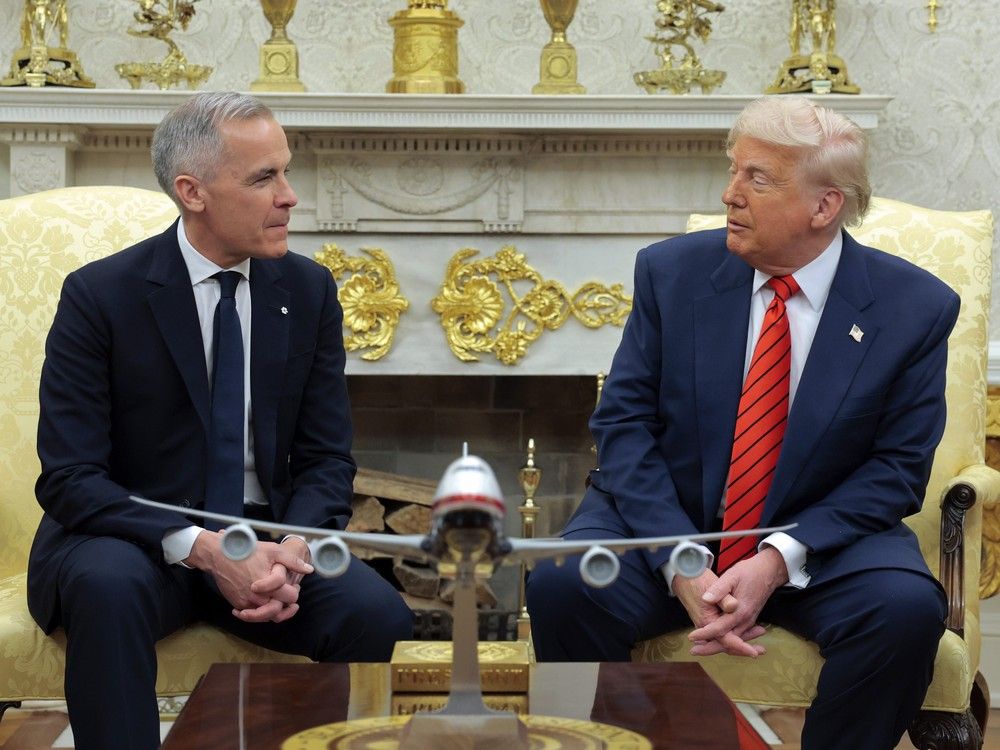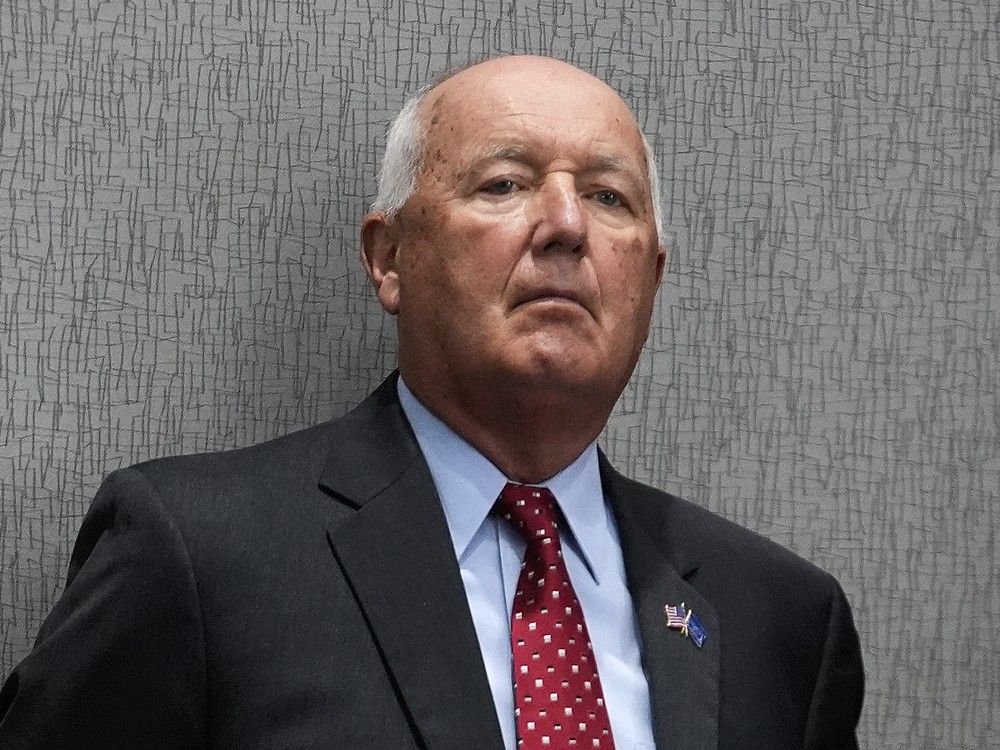
Within hours of Canada’s sovereignty being made abundantly clear by its King in a historic and symbolic speech from the throne in the nation’s capital, U.S. President Donald Trump once again made a pitch for Canada to become the 51st state.
In a post to Truth Social, he said the cost to join in the “fabulous Golden Dome System” — the multilayered missile defence program to counter foreign threats to America, even those coming from space — would be US$61 billion should Canada choose to remain “a separate, but unequal, Nation.”
But join the U.S. as its “cherished 51st state” and protection from the defence program will cost Canada “zero dollars.”
“They are considering the offer,” Trump wrote.
( @realDonaldTrump - Truth Social Post )
— Donald J. Trump 🇺🇸 TRUTH POSTS (@TruthTrumpPosts) May 27, 2025
( Donald J. Trump - May 27, 2025, 5:41 PM ET )
I told Canada, which very much wants to be part of our fabulous Golden Dome System, that it will cost $61 Billion Dollars if they remain a separate, but unequal, Nation, but will cost ZERO… pic.twitter.com/iKSSYkRVzz
Prime Minister Mark Carney’s office didn’t say whether it received such an offer when contacted by National Post, but said discussions on NORAD and the Golden Dome have been part of “wide-ranging and constructive discussions” Carney and his ministers have had with U.S. counterparts.
But while acting on his citizen-driven mandate to establish a new relationship with the U.S., his office said, “the Prime Minister has been clear at every opportunity, including in his conversations with President Trump, that Canada is an independent, sovereign nation, and it will remain one.”
National Post has contacted the White House press secretary and is awaiting a response.
The president first announced the Golden Dome initiative in the Oval Office last week , remarking during his address and in questioning from reporters that “Canada wants to be part of it” and will “pay their fair share.”
“We are dealing with them on pricing,” he said.
In a statement to the Canadian Press at the time, a spokesperson for the prime minister confirmed talks on the Golden Dome, but didn’t share costs or specifics.
The project has already been awarded its first $25 billion with the passage of Trump’s “One Big Beautiful Bill Act” — legislation that covers reforms in several sectors, including defence.
Carney has made multiple commitments on defence spending, the most recent being in Tuesday’s throne speech, which confirmed Canada would join ReArm Europe, the European Commissions’s plan to give member nations more “financial flexibility” to mobilize a combined 800 billion euros (CAD$1.25 trillion) for a “massive ramp-up of defence spending.”
Carney later told CBC he hopes to finalize that deal by July 1.
“Seventy-five cents of every dollar of capital spending for defence goes to the United States. That’s not smart,” he said.
As part of a pledge that Canada would hit NATO’s defence spending target of two per cent of gross GDP by 2030, the Liberals’ election platform included $130 billion in new defence spending over the next four years.
Canada’s position as one of just eight member nations that aren’t hitting the mark has been a bone of contention from multiple U.S. administrations , not just Trump’s.
When the pair had their first face-to-face at the White House in early May, Trump remarked that “Canada is stepping up the military participation.”
On the heels of that meeting, Pete Hoekstra, the new U.S. Ambassador to Canada, told National Post that both his and Trump’s standpoint, “51st state’s not coming back.”
“The president may bring it up every once in a while, but he recognizes it’s not going to happen unless the prime minister engages with the president,” he added.

Last week, Hoekstra told the Hill Times that while he appreciates Canadians’ concerns about Trump’s continued rhetoric, he’s not going to be distracted by it.
“I’m moving forward. The president sent that message clearly when he was with the prime minister. Now we’re waiting to see how Canada responds,” he said regarding the request for a proposal on how it wants to proceed on future trade agreements.
Hoekstra said he was “not very sympathetic” to Canadians feeling slighted, suggesting the U.S. is “hurt, too,” citing Canada’s lengthy NATO spending shortfall.
“International diplomacy is tough. The world is a tough place. Getting prosperity, security, and safety for people, which are the top priorities of the president, that’s hard,” he said. “So, no, I’m not very sympathetic.”
Our website is the place for the latest breaking news, exclusive scoops, longreads and provocative commentary. Please bookmark nationalpost.com and sign up for our daily newsletter, Posted, here.